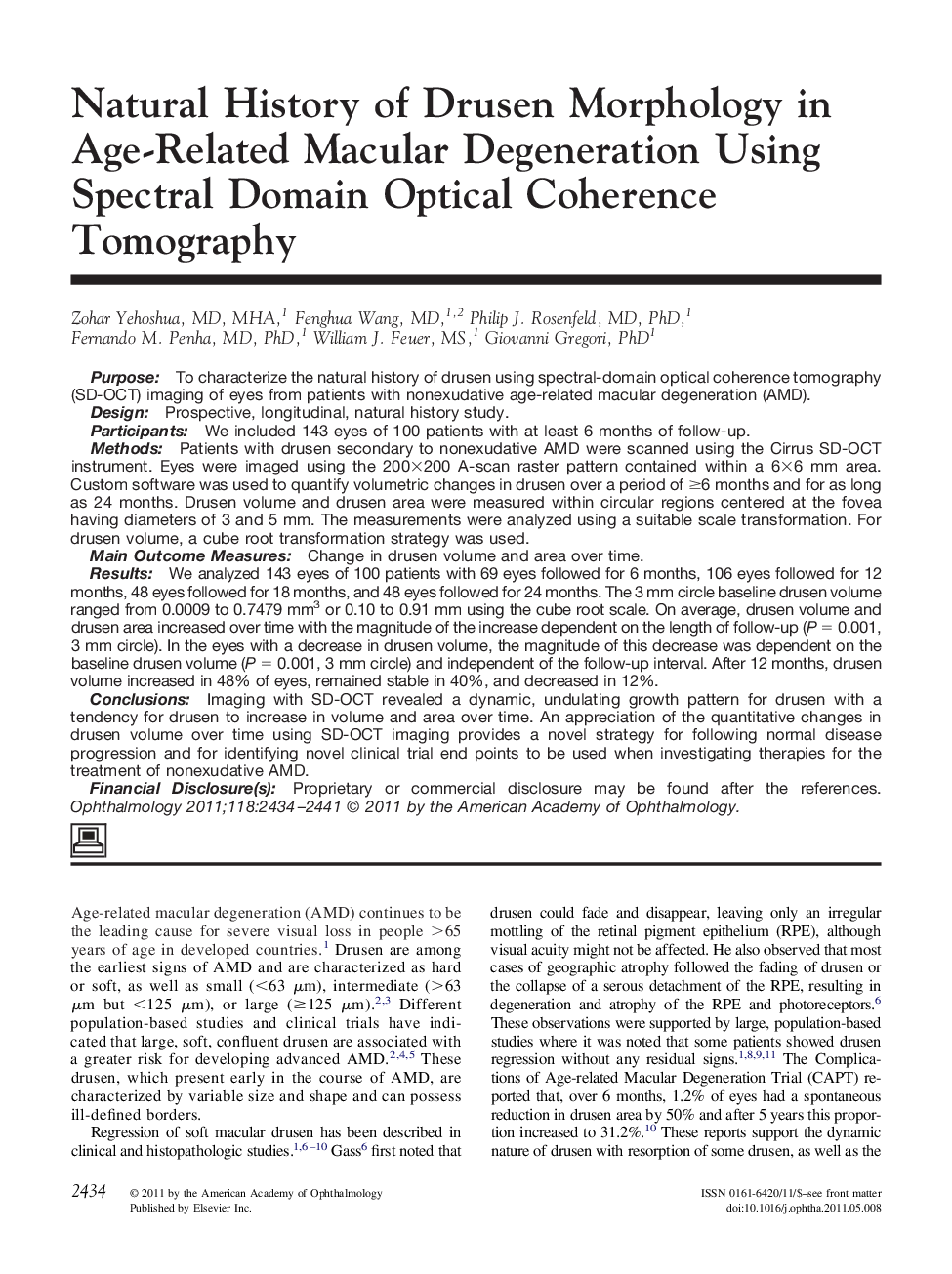| کد مقاله | کد نشریه | سال انتشار | مقاله انگلیسی | نسخه تمام متن |
|---|---|---|---|---|
| 4027603 | 1262460 | 2011 | 8 صفحه PDF | دانلود رایگان |

PurposeTo characterize the natural history of drusen using spectral-domain optical coherence tomography (SD-OCT) imaging of eyes from patients with nonexudative age-related macular degeneration (AMD).DesignProspective, longitudinal, natural history study.ParticipantsWe included 143 eyes of 100 patients with at least 6 months of follow-up.MethodsPatients with drusen secondary to nonexudative AMD were scanned using the Cirrus SD-OCT instrument. Eyes were imaged using the 200×200 A-scan raster pattern contained within a 6×6 mm area. Custom software was used to quantify volumetric changes in drusen over a period of ≥6 months and for as long as 24 months. Drusen volume and drusen area were measured within circular regions centered at the fovea having diameters of 3 and 5 mm. The measurements were analyzed using a suitable scale transformation. For drusen volume, a cube root transformation strategy was used.Main Outcome MeasuresChange in drusen volume and area over time.ResultsWe analyzed 143 eyes of 100 patients with 69 eyes followed for 6 months, 106 eyes followed for 12 months, 48 eyes followed for 18 months, and 48 eyes followed for 24 months. The 3 mm circle baseline drusen volume ranged from 0.0009 to 0.7479 mm3 or 0.10 to 0.91 mm using the cube root scale. On average, drusen volume and drusen area increased over time with the magnitude of the increase dependent on the length of follow-up (P = 0.001, 3 mm circle). In the eyes with a decrease in drusen volume, the magnitude of this decrease was dependent on the baseline drusen volume (P = 0.001, 3 mm circle) and independent of the follow-up interval. After 12 months, drusen volume increased in 48% of eyes, remained stable in 40%, and decreased in 12%.ConclusionsImaging with SD-OCT revealed a dynamic, undulating growth pattern for drusen with a tendency for drusen to increase in volume and area over time. An appreciation of the quantitative changes in drusen volume over time using SD-OCT imaging provides a novel strategy for following normal disease progression and for identifying novel clinical trial end points to be used when investigating therapies for the treatment of nonexudative AMD.Financial Disclosure(s)Proprietary or commercial disclosure may be found after the references.
Journal: Ophthalmology - Volume 118, Issue 12, December 2011, Pages 2434–2441